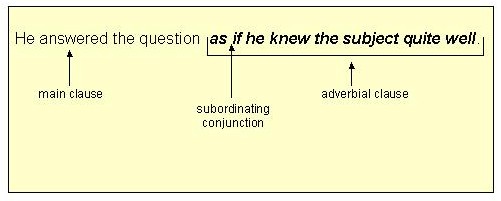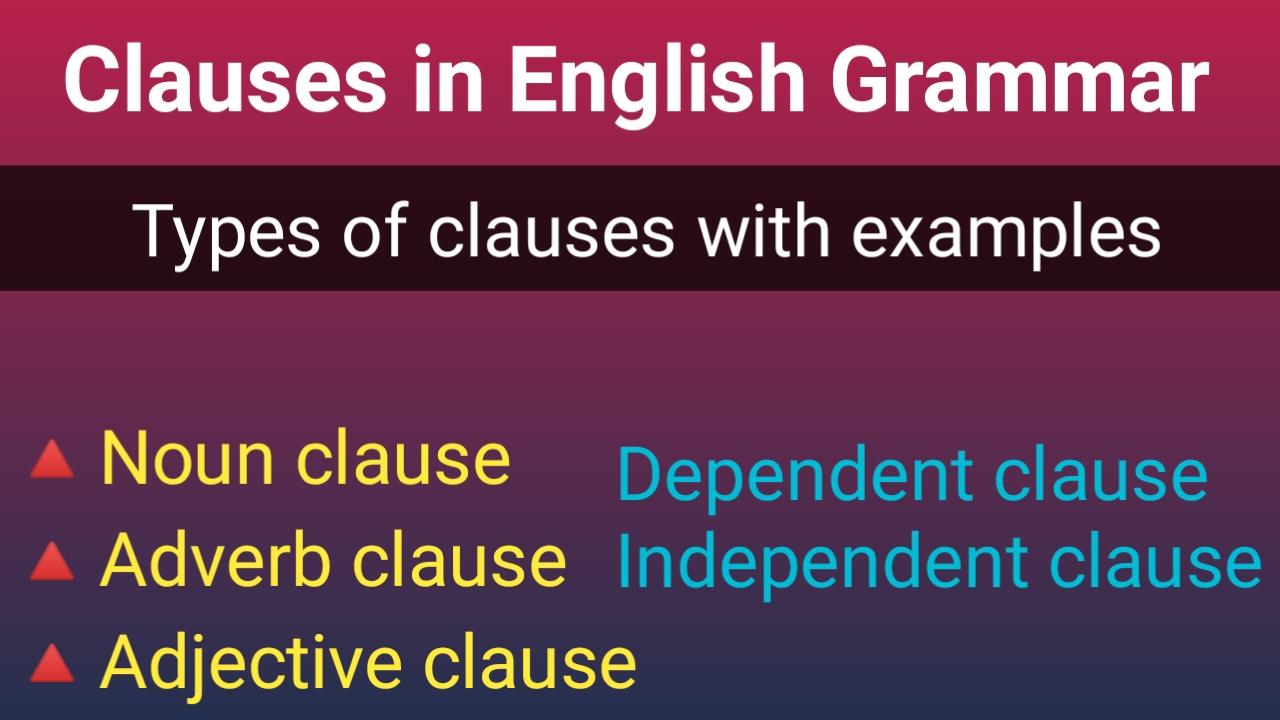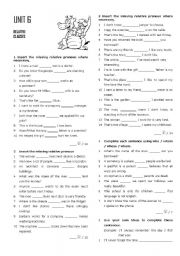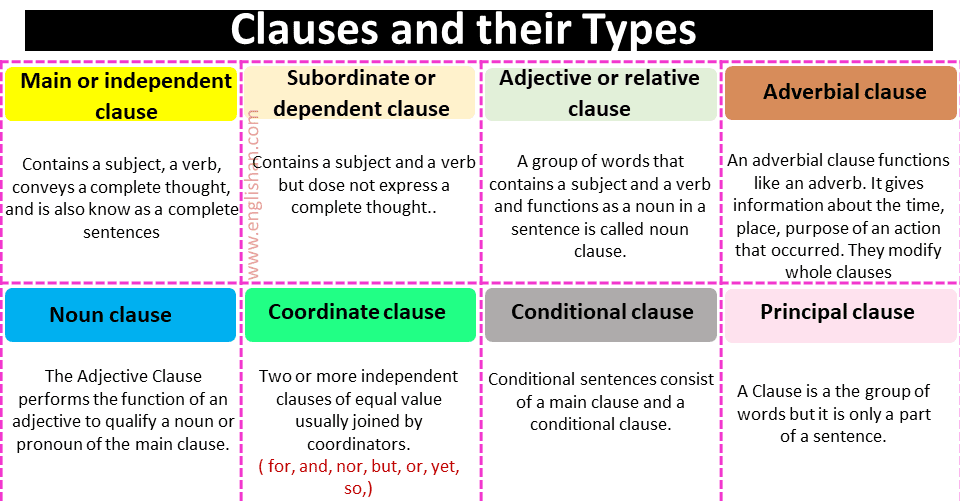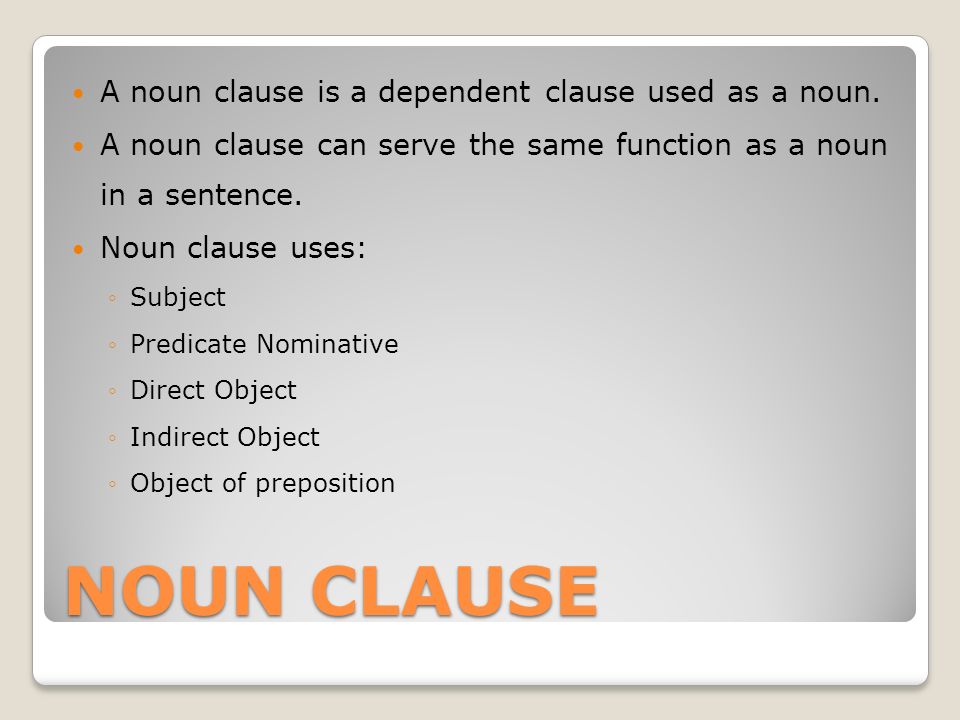An adjective clause, also known as a relative clause, is a clause that modifies a noun or pronoun in a sentence. It is introduced by a relative pronoun (such as "who," "whom," "that," "which," or "whose") and provides additional information about the noun or pronoun. For example:
The student who studied hard got an A on the exam.
In this sentence, the adjective clause "who studied hard" modifies the noun "student" and provides additional information about the student's actions.
An adverb clause is a clause that functions as an adverb in a sentence, providing additional information about the verb or the sentence as a whole. Adverb clauses are introduced by a subordinating conjunction (such as "because," "when," "while," "if," or "although") and provide information about time, cause, condition, concession, or manner. For example:
I will go to the store when I finish my homework.
In this sentence, the adverb clause "when I finish my homework" provides information about the time at which the speaker will go to the store.
A noun clause is a clause that functions as a noun in a sentence, acting as the subject, object, or object of a preposition. Noun clauses are introduced by a subordinating conjunction (such as "that," "if," "whether," "why," or "how") and provide information about the subject, object, or theme of the sentence. For example:
It is important that you finish your homework on time.
In this sentence, the noun clause "that you finish your homework on time" is the direct object of the verb "is important."
In summary, adjective clauses modify nouns or pronouns and provide additional information about them, adverb clauses provide information about the verb or the sentence as a whole, and noun clauses act as nouns and provide information about the subject, object, or theme of the sentence. These three types of clauses play important roles in constructing complex and nuanced sentences in the English language.

